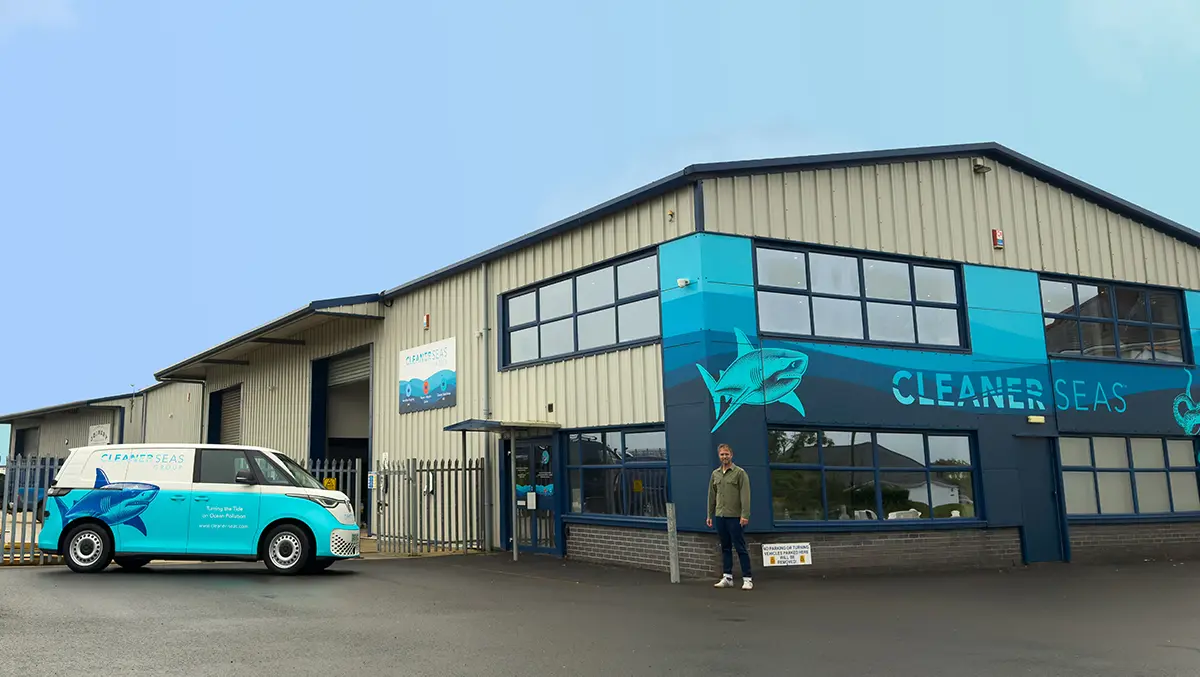
Cornwall facility tackles microplastics with new recycling tech
Cleaner Seas Group has launched a facility in Cornwall dedicated to recycling microplastics, aiming to stop up to 86 tonnes of harmful microfibres from entering the ocean each year.
The facility, located in Bude, combines microfibre filtration technology with a closed-loop recycling lab, addressing the growing issue of microplastics in the environment. This development contributes to both the UK technology sector and global efforts to reduce plastic pollution, which has become a significant threat to marine life and public health.
Facility details
The Microfibre Filter Hub, Microplastic Recycling Lab and Return + Recycle Centre are designed to intercept microplastics before they reach waterways. The technology is capable of capturing plastic fibres in domestic, commercial and industrial settings, with the new facility taking the process further by converting the collected microplastics into usable materials. Potential applications for these recycled materials include construction components, packaging, and battery materials.
According to recent studies referenced by the company, microplastics have been detected in a significant portion of the human population. A 2022 survey revealed that 80 percent of participants had microplastics in their bloodstream. Estimates from the UN Environment Programme suggest that approximately 13 million metric tonnes of plastic enter the ocean every year.
Dave Miller, Chief Executive Officer of Cleaner Seas Group, commented on the global nature of the microplastic problem and the company's response:
Let's be honest – microplastic pollution is a global crisis hiding in plain sight. It's in our oceans, our food, our brains and and our bloodstreams. We're told it's too complex to fix, too late to act – but we're proving that's not true. This new facility isn't just about filtration or recycling – it's about completely shifting the way we deal with waste and sustainable materials.
The CEO highlighted the commercial and environmental aims behind the facility, saying:
We've built a system that stops microplastics before they enter our waterways and transforms them into materials with real value. That's a genuine circular economy in action – not theory, not greenwash, but something tangible, scalable and right here in Cornwall.
He added:
It shows you don't have to choose between protecting the planet and building a commercially viable business. You can do both. And in a world crying out for climate action and practical solutions, we're proud to be offering one. This is just the beginning.
Public funding and regional development
The project has attracted close to GBP £928,000 in funding from the Cornwall and Isles of Scilly Good Growth Programme, which is overseen by Cornwall Council and underwritten by the UK Shared Prosperity Fund. The funding is intended to spur job creation, enhance regional research capacity, and establish Cornwall as a centre for sustainable manufacturing practices.
Councillor Adam Paynter, Deputy Leader of Cornwall Council, stated:
We're proud to support innovative, purpose-led businesses like Cleaner Seas Group that are placing Cornwall at the forefront of global environmental solutions. This world-first facility is a testament to the kind of bold thinking we need to protect our planet and grow our green economy. It creates high-quality jobs, drives cutting-edge research, and shows that Cornwall can be a leader not just in ambition–but in action.
Adoption by industry
The microfibre filters developed by the Cleaner Seas Group have already been deployed in the travel sector. In 2024, Marella Cruises, part of TUI Group, became the first cruise company to install microfibre filters across its entire fleet. Each vessel is expected to capture up to 500 kilograms of microfibre pollution per year, setting a new sustainability standard for the sector, as described by the company.
The facility forms part of a broader growth plan, with Cleaner Seas Group aiming to expand technology development and establish new partnerships. The company states that these efforts are timed alongside increasing policy attention and public concern regarding plastic pollution. The group emphasises its intention to address microplastic releases at the source by intercepting pollution before it enters natural waterways.
The efforts by Cleaner Seas Group resonated with themes widely discussed by figures such as Sir David Attenborough and Prince William, both of whom have previously spoken about the threats posed to marine ecosystems by plastic pollution.


